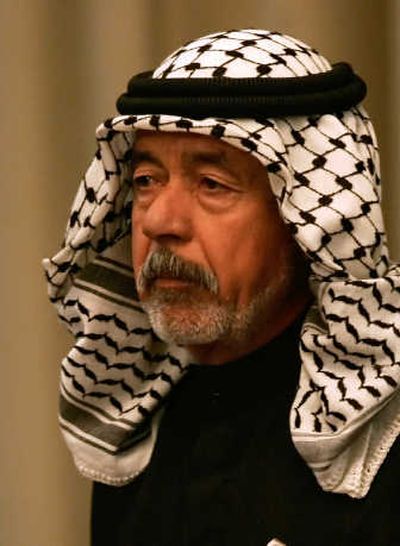‘Chemical Ali’ gets death sentence

BAGHDAD – The location was a secret. The timing unannounced. Prosecutors were not identified as they stood silently in the chilly marble-and-granite courtroom, facing defendants secured in a steel pen.
For all the trepidation surrounding the televised conclusion Sunday of post-invasion Iraq’s biggest trial, it was a stooped man with a cane on whom everyone fixated, and he needed no introduction as he appeared to hear his fate.
Ali Hassan Majid, dubbed “Chemical Ali” for his role in the gassing of tens of thousands of Kurds in 1987-88, was convicted of genocide and sentenced to death by hanging, the seventh associate of former President Saddam Hussein to face the gallows.
The trial once had captivated Iraqis and was seen as an opportunity to disclose the nation’s violent past fully in the name of national reconciliation. Ten months and some 85 witnesses later, though, the rigorous security surrounding the sentencing and the reactions of people who followed the case showed how little reconciliation has been achieved.
Many Kurds want autonomy from the rest of Iraq and are demanding that a referendum on heavily Kurdish-populated areas joining the semiautonomous region of Kurdistan, be held despite resistance from Sunni Arabs and the Shiite-led government.
A proposal to allow members of Saddam’s once-ruling Baath Party to return to government and military positions also is stalled. Those involved in negotiating the issues, both of them White House benchmarks for bringing order to Iraq, say it is unlikely there will be agreements anytime soon.
“The legacy of the Baath Party and what it did for Iraq society still is not very healed, and there are a lot of exposed wounds on this thing,” said a U.S. Embassy official.
The legacy was clear inside the court, where two of Majid’s co-defendants yelled objections as the judge announced the verdicts and sentences, and in the cafes and shops where Iraqis heard the news.
Majid was one of six defendants remaining from the al-Anfal trial. The seventh, Saddam, was hanged in December after being convicted in connection with a separate 1980s massacre against Shiite victims in the city of Dujayl. Saddam’s execution left Majid, his cousin, the most infamous of the al-Anfal defendants.
The others were Hussein Rashid Muhammed, Sultan Hashim Ahmad Jabburi Tai, Sabir Abdul Aziz Douri, Farhan Mutlak Jabouri and Tahir Tawfiq Ani. All were high-ranking military or intelligence officials under Saddam except for Ani, who was a northern governor.
The charges against them stemmed from an Iraqi military offensive in northern Iraq two decades ago dubbed al-Anfal, or the “spoils of war” campaign, in which as many as 180,000 Kurds were killed, according to prosecutors. During the trial, the defendants said they were acting under Saddam’s orders to target Kurdish rebels allied with Iran during the Iran-Iraq war.
Prosecutors countered that the aim was to eliminate Iraq’s Kurdish population and that victims included women, children, and farmers whose orchards were destroyed and livestock shot dead. Many victims died when government aircraft dumped mustard gas and nerve gas on them. Others perished in detention camps or were gunned down and buried in mass graves. After Saddam’s ouster in April 2003, many of the graves were uncovered.
One by one, each defendant was brought into the courtroom Sunday to hear the verdict and sentence.
The charges against Ani, as expected, were dismissed after the presiding judge said there was insufficient evidence presented against him. Prosecutors earlier had agreed to this.
Jabouri and Douri were each given life in prison for war crimes and received additional sentences for having forced Kurds off their land and seizing their property. Majid, Tai and Muhammed each were convicted of genocide and other crimes and sentenced to hang.
Kurds interviewed Sunday for the most part declared the outcome just, and many called on the government to hang the defendants in Halabja, a Kurdish town where about 5,000 people were believed gassed to death.
But many Sunnis denounced the verdict.
At a tea shop in Baghdad, several men said the trial was unfair and the Kurds got what they deserved for not backing Saddam during the Iran-Iraq war.
“If I were in charge, I would have hit them with chemical weapons as well,” said Abu Amir Saadi.